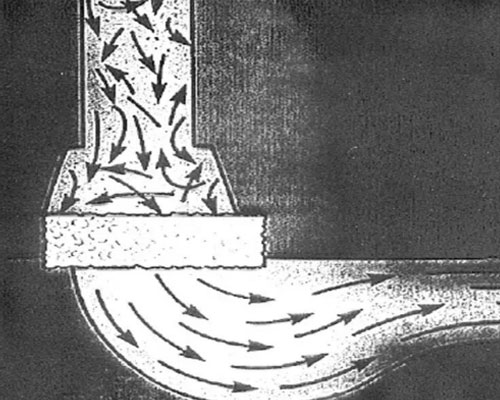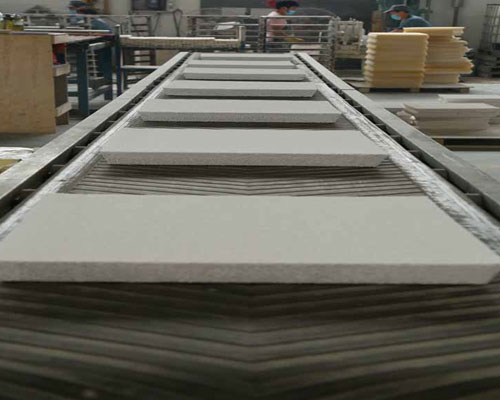Foundry Filter for Molten Alu plays a very important role in improving the quality of castings. It can effectively filter liquid-solid non-metallic inclusions in molten metal once or twice, thereby reducing slag holes, improving the mechanical properties of castings, reducing machining allowances, improving surface finish, and prolonging the service life of castings.
If the molten aluminum ceramic foam filter is used improperly, the effect is worse than other filters. The filtration area of the Foundry Filter for Molten Alu should be large enough to not affect the flow rate of aluminum alloy melt. There should be enough space before and after the filter to collect inclusions. The molten aluminum alloy should be melted in a melting furnace (avoid oxidation and slagging treatment), and refining and degassing in a holding furnace.
Due to the limited filtering capacity of the filter, too dirty aluminum alloy liquid will cause the post-filtered aluminum alloy liquid to be dirtier than the first-filtered aluminum alloy liquid. The viscosity of the filtered aluminum alloy liquid is reduced, and the fluidity is increased by 10% ~ 15%. Therefore, the filling capacity of the aluminum alloy melt can be improved by filtering.
Before filtering, the flow of aluminum alloy fluid is turbulent, and after filtering, it becomes laminar (the curvature of the ceramic foam filter is curved in the flow path), thereby reducing the volume of air and two types of slagging. In the filtering process, the filtering mechanism filters from the sieve and the filter cake to the deep layer. The purity of the filtered aluminum alloy is getting higher and higher (not exceeding the maximum filtering capacity of the ceramic foam filter).

Foundry Filter for Molten Alu
AdTech has a complete quality control system for ceramic foam filters, including technical standards, testing equipment and testing methods to achieve product quality control requirements. After the aluminum alloy material is mixed with slag, the performance of the alloy deep-processed parts is destroyed, and the yield rate is reduced, which will cause a certain economic loss.
In production, the method of slag removal and filtration is required to eliminate slag inclusions as much as possible. Slag inclusions in aluminum alloy castings are one of the main factors affecting the quality of deep-processed products. The quality of the product directly affects its market share and economic benefits. In order to survive and develop, it is necessary to increase the added value of products and carry out deep processing.

